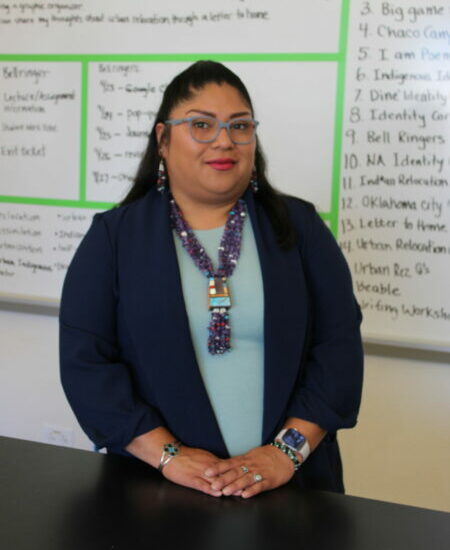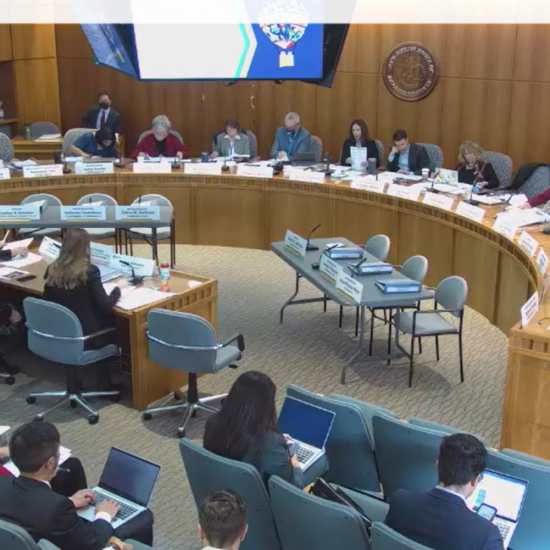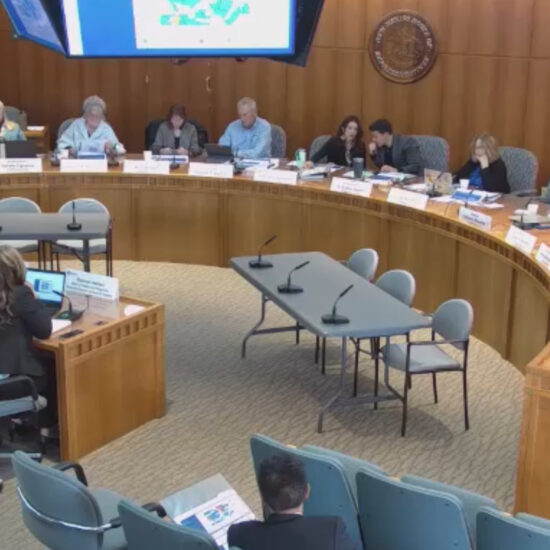
The New Mexico Public Education Department’s recent decision to eliminate most licensure exams for aspiring teachers beginning July 1 is “deeply concerning” and flies in the face of best practice, says a leading national expert on teacher preparation.
“Removing the licensure tests that ensure that aspiring teachers have the core content knowledge they need to teach could be quite harmful to the state’s goals for kids, particularly around improving student literacy and mathematics,” Heather Peske, president of the National Council on Teacher Quality (NCTQ), said in an interview with New Mexico Education.
“In both literacy and mathematics we know content knowledge is an integral part of supporting students’ mathematical knowledge and understanding and reading comprehension,” Peske said. “The state’s goal of trying to support student learning is not aligned with the policy decision to remove licensure tests for aspiring teachers.”
NCTQ, founded in 2000, bills itself as the only nonprofit, nonpartisan organization solely dedicated to issues of teacher quality.
The exams being eliminated are national standardized tests known as Praxis.
The only test that will still be mandatory for all teaching candidates is one that assesses ability to teach reading to elementary school students, which is enshrined as a requirement in state statute.
No longer required will be tests that assess candidates’ core academic skills in reading, writing, and mathematics, or tests on principles of elementary learning and teaching, and an elementary education curriculum instruction test.
PED officials have offered two main reasons for doing away with the exams. First, they have said in both written documents and in an April 29 appearance before the Legislative Education Study Committee (LESC), the tests can be prohibitively expensive – up to $700 for a battery of six required tests. That’s problematic in a state like New Mexico trying to diversify its teaching force.
Second, officials have argued, switching to a portfolio model of teacher licensure, where teachers prepare lessons and submit materials for review as a way of demonstrating teaching ability and content knowledge, provides deeper and more accurate information about a candidate’s qualifications.
“We are happy to announce this change during Teacher Appreciation Week because New Mexico and the rest of the country have a chronic teacher shortage,” Public Education Secretary Kurt Steinhaus said in a press release. “It’s not unreasonable to think these expenses could deter a new college graduate from pursuing a career in education when our goal is to do the opposite, to encourage more students to consider this pathway. Portfolios provide a deeper demonstration of a graduate’s teaching ability than a test, so this move lets us help our teachers while ensuring or even improving the rigor of the process.”
Those arguments seemed to persuade most members of the LESC, though a few pointed out that the state, awash in Covid relief dollars for education, could easily subsidize the exam fees. The PED received at least $97 million in the latest round of federal relief dollars.
Peske made that same argument, adding that the cost to the state of developing and implementing a comprehensive portfolio review system would likely far outstrip the cost to state coffers of paying for licensure exams.
On the more substantive issue of the validity of portfolios versus exams, Peske took issue with the state position. While a robust, carefully vetted portfolio review could complement exams, it is hard to see how such a system on its own could provide information needed to assess teacher candidates thoroughly, she said.
But perhaps more important, Peske argued, PED has to date released little information on how the portfolio system will be developed, who will evaluate it, and how it will be overseen. To create and monitor such a system effectively would be extremely expensive, she said.
Portfolios as a way of assessing teacher candidates aren’t “inherently bad,” Peske said. But the lack of specifics about a program being launched July 1 is cause for concern.
“It doesn’t sound like these portfolios would encompass the breadth of content knowledge that licensure tests assess,” she said. “Given the fact that New Mexico has not yet developed the process or the standards for how they would validate these portfolios, it is difficult to know exactly how rigorous they would be.”
Switching away from exams and to a portfolio system would make New Mexico a national outlier. Only Wisconsin has done away with most teacher basic skills exams in favor of portfolios, Peske said.
Under the PED’s plan, the state’s teacher preparation programs would conduct the portfolio reviews and then certify that aspiring teachers were classroom-ready. This raises a concern about objectivity, Peske said, as well as uniformity of standards across preparation programs.
“It’s not clear to me what process would be in place to validate the portfolios to determine whether they’re predictive of teacher effectiveness,” Peske said.
The PED did not respond to repeated requests for comment. In its press release, PED said it would “work with the educator preparation programs to develop a standard rubric the programs will use to evaluate portfolios for licensure purposes.”
Another concern some members of the study committee expressed about the Praxis exams is their inherent cultural bias, which could disadvantage the very teacher candidates New Mexico hopes to attract, so its teaching force more closely resembles its student population.
Peske, who served in a senior role in the Massachusetts state education department, said those concerns are valid but work-arounds are possible. In Massachusetts, she said, the state created a racially diverse committee of teachers, education program faculty, and content experts to study the tests.
“They reviewed the tests, asked questions about the extent to which they’re biased, and then made changes based on those recommendations,” she said.







